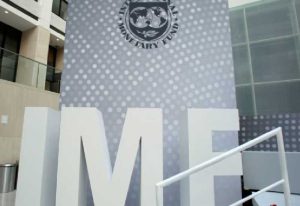The raging military attacks by Russia on Ukraine have sent shivers across the world as there are fears about oil prices rising beyond the capabilities of many countries particularly developing nations such as Ghana.
With Russia being the second highest producer of the “black gold” in the world, the war, which many believe will last for months, will automatically heat the markets as a result of supply shortages in the world to force the prices up.
Particularly at a time when the United States (US) and the whole of Europe are announcing sweeping sanctions against Russia to seriously cripple its economy and financial strength, there are signs that the energy sector will be affected.
Last week, some of the sanctions announced forced prices of crude to rise above the $100 mark for the first time in almost a decade but that did not last for long.
Oil pared most of its gains after President Joe Biden said the US work with major consuming nations to coordinate a collective release from strategic petroleum reserves while continuing to spare Russian supplies from sanctions.
A Bloomberg report monitored by the Daily Graphic said the futures in New York closed under $93 a barrel last Friday and Brent slipped under $100 a barrel after earlier soaring to as high as $105.79 in the immediate aftermath of Russia’s invasion of Ukraine. Biden sanctioned Russia’s five major banks but said that energy supplies would be omitted from sanctions at this time. Biden also floated the potential for more oil barrels to be released from strategic reserves in coordination with other nations.
The European Union (EU), US, United Kingdom (UK) and allies are beginning to exclude a number of Russian banks from Swift, an international payment system used by thousands of financial institutions.
The move aims to hit the country’s banking network and its access to funds via Swift, which is pivotal for the smooth transaction of money worldwide.
Swift is the global financial artery that allows the smooth and rapid transfer of money across borders. It stands for Society for Worldwide Interbank Financial Telecommunication. Created in 1973 and based in Belgium, Swift links 11,000 banks and institutions in more than 200 countries. It is not the traditional High Street bank but a sort of instant messaging system that informs users when payments have been sent and arrived.
Much as the big economies did not want to act in this manner, they seem to have no alternative and, therefore, sanctions on the energy sector as the last resort is imminent.
Consequences on Ghana
Already the prices of petroleum products, particularly petrol and diesel are inching closer to GH¢8 per litre and getting the economy heated.
Inflation is almost at 14 per cent and transport cost had been increased by between 15 and 30 per cent from last week, raising the cost of living in the country inches higher.
Should the energy sector in Russia be affected by the sanctions, it is likely that crude oil prices will hit the $100 mark again if the elite class of the Organisation of Oil Producing Countries (OPEC) does not announce immediate measures to fill the gap in supplies.
There are calls for the government to begin exploring measures that will lead to the country refining a portion of its crude oil for sale at breakeven prices for the populace in the interim.
This will be part of measures to cushion the populace against the harsh effects of the increasing oil prices on economic activities in the country.
An international investment consultant with experience in the oil sector, Dr Sam Ankrah, said: “this is the time for the government to explore all options to ensure that the impact of increasing oil prices does not worsen the already harsh economic situation.”
Dr Ankrah, who is also the President of the Africa Investment Group, proposed the immediate revamp of the Tema Oil Refinery (TOR) and Bulk Oil Storage and Transportation (BOST) to play key roles in that endeavour.
The Chamber of Petroleum Consumers (COPEC) has also called on the government to remove some taxes on petroleum products as a way to reduce prices at the pumps.
Way forward
At a time when the government is yearning for more revenue to accrue from the sale of commodities such as oil, the increasing prices of crude oil could be good news because it will record a windfall. But the flip side could be dire on businesses and the economy at large with inflation already rising steadily.
It is not likely the war will be over soon. The sanctions on the energy sector in Russia are imminent and the impact on global oil prices will be inevitable should that happen.
The best is for the government and the citizenry to brace for the worst as long as the war lasts.
However, in order to reduce the impact of the effect of what has turned out to be a grave concern for Ghanaians and their businesses, there is the need for the government to hurriedly announce measures to cushion the people and businesses against the effect and bring certainty to the economy. The advice from the experts is worth considering and must, therefore, not be overlooked.
Ashantibiz




